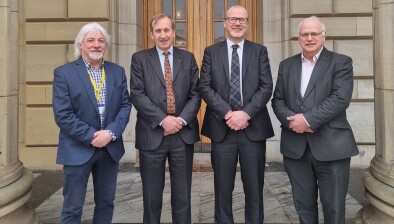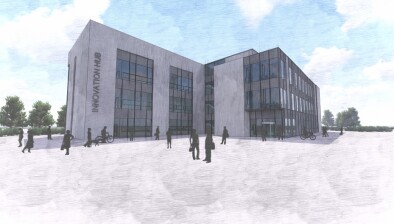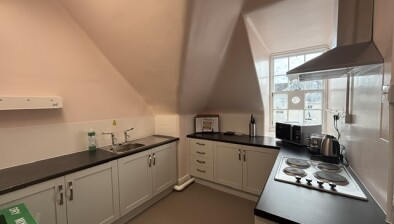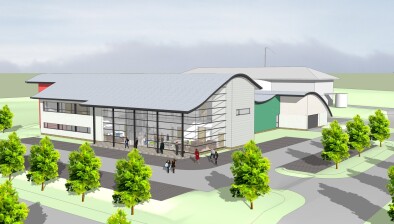Green light for Dundee biomedical cluster project
Work to build on Dundee’s world-class expertise in biomedical sciences is set to begin in earnest after the ‘Growing the Tay Cities Biomedical Cluster’ project was officially signed off by the Tay Cities Region Joint Committee today.
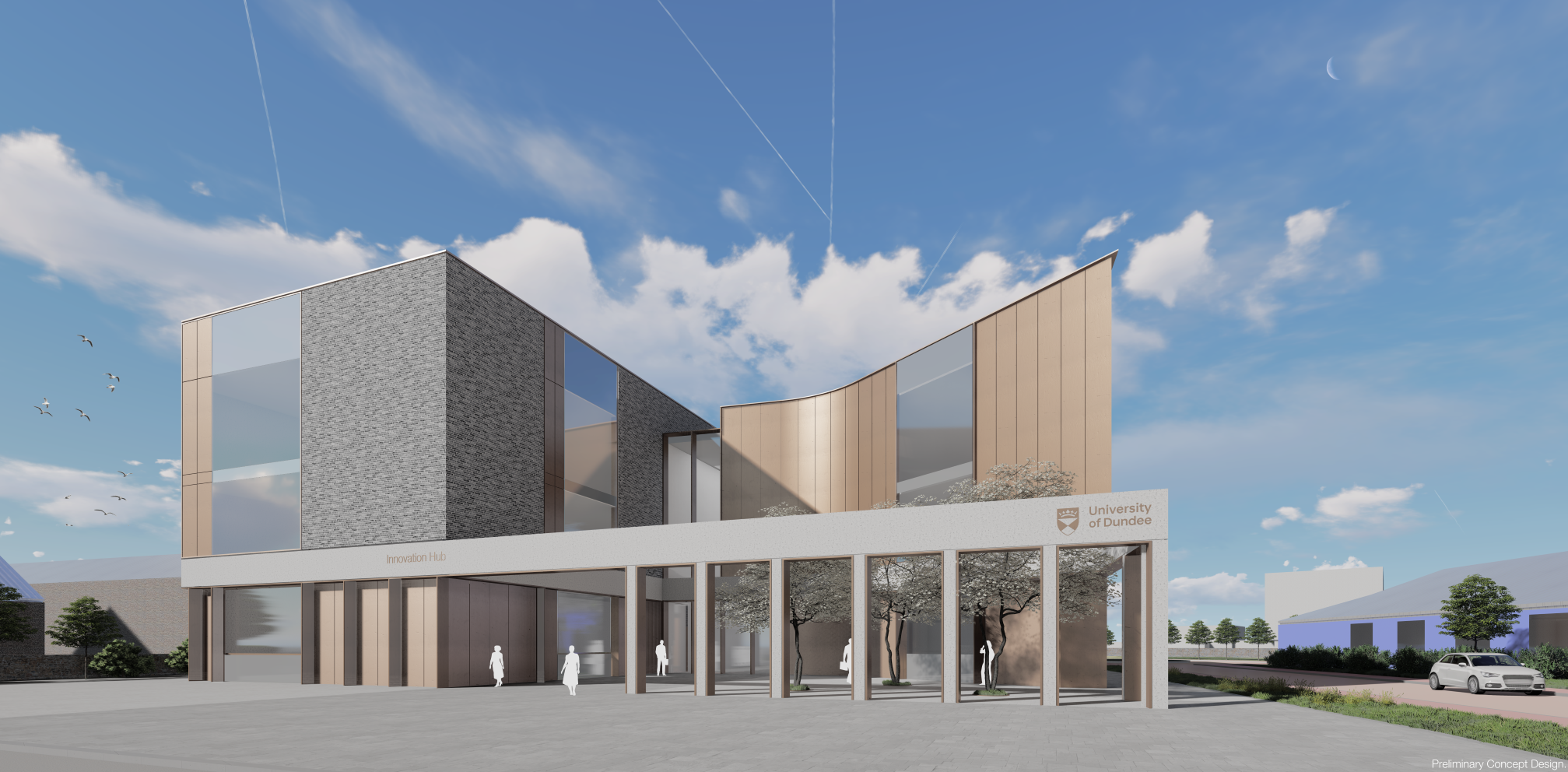
Preliminary concept image of the Tay Cities Regional Innovation Hub
The project will help the post-COVID-19 recovery through the development of new medicines, innovative medical technologies and the provision of high-quality new jobs, according to the University of Dundee academics leading it.
The Biomedical Cluster project has received initial funding of £25 million from the Scottish Government as part of the Tay Cities Deal. The project builds on the University’s world-class expertise in life sciences research, drug discovery and medical innovation.
The three main elements of the Biomedical Cluster project are:
- The creation of a Tay Cities Regional Innovation Hub where world-class life sciences innovation and entrepreneurial expertise will drive high-growth company formation, providing new treatments and technologies, and jobs for the region.
- The development of a unique Clinical R&D Innovation Environment, which will be incorporated within the new multidisciplinary Tayside Innovation MedTech Ecosystem (TIME).
- An expansion of the Thiel Cadaver Facility at the University’s Centre for Anatomy and Human Identification (CAHID).
Growing the Tay Cities Biomedical Cluster is being delivered in partnership with NHS Tayside.
Central to the project is the creation of an Innovation Hub at Dundee Technopole, adjacent to the University’s School of Life Sciences. This will fill a critical gap – the ability to house new high-growth spinout companies generated from the region’s burgeoning research activity.
A strong pipeline of new companies will be accommodated and supported through their high-growth phase. Company formation will be powered by inward investment and will provide high-quality employment, backed by training opportunities delivered by the Tay Cities higher education sector. Construction of the Innovation Hub will commence later this year and is scheduled to open in mid-2023.
The funding will also enable the transformation of Wilson House in Dundee Medipark near Ninewells Hospital into a cutting edge innovative and collaborative environment where students, staff, clinicians, designers, engineers and data scientists can develop disruptive technologies for the healthcare industry.
The space will host cutting-edge equipment and unique cadaveric facilities supporting key areas such as image-guided technology and robotics surgery as well as collaborative projects, including the use of digital and gaming solutions in medical practice. Construction work to repurpose the building will commence this year, with projects moving into the facility from late Autumn 2022.
Cabinet secretary for transport, infrastructure and connectivity Michael Matheson said: “Across Scotland we have committed more than £1.9 billion over the next 10 to 20 years to City Region and Growth Deals and additional investments. This announcement represents another milestone in the Tay Cities Deal.
“The Scottish Government is providing £25 million to support the university’s world class reputation in the sector with a project which promises to bring jobs and investment to the region. This project will support local suppliers, work with local schools and is committed to our Low Carbon future. Inclusive growth is central to this project, creating opportunities for local people, including those from our more deprived areas.”
John Alexander, leader of Dundee City Council, said, “It has been clear from the outset that the Tay Cities Deal would not only invigorate the area by encouraging and supporting new developments, it would also play to what were already strengths in the city’s economy.
“Life sciences is one of those areas where we have been leading the way for a number of years and with the committee’s approval of the Biomedical Cluster, we will build on that to boost employment, opportunities and innovation now and into the future.”
The University is leading two major projects within the Tay Cities Deal. In addition to Growing the Tay Cities Biomedical Cluster, a further £15 million of UK Government funding has been earmarked for JustTech, which will capitalise on the University’s world-class strengths in forensic science.
The Tay Cities Deal is a partnership between the UK and Scottish governments along with public and private organisations across Angus, Dundee, Fife and Perth & Kinross that together will invest up to £700 million in projects promoting sustainable and inclusive prosperity for the region.
Independent economic assessment of the impact of the Growing the Tay Cities Biomedical Cluster project predicts that some 280 new biomedical jobs will be created by 2033, rising to 800 new jobs and over £190m benefit to the local economy by 2053.
Professor Sir Mike Ferguson, Regius Professor of Life Sciences and co-lead of the Growing the Tay Cities Biomedical Cluster project, said: “The Tay Cities Deal will make a profound difference to the local area, but the impact of this particular project will also be felt across the globe as companies and collaborations formed in Dundee influence the future of healthcare by developing new drugs, treatments and medical innovations.
“The COVID-19 pandemic has created massive disruption everywhere and demonstrated more than ever the importance of science for public benefit. We have one of the highest-performing and largest life sciences research portfolios in the UK. The Tay Cities Deal will enable us to take our discoveries and innovations to the marketplace and, crucially, to anchor new companies and quality jobs for our citizens in this community.
“The time is right for us to convert our pre-eminence in life sciences research into tangible socio-economic benefit for the region, as well as health benefits for the world.”











